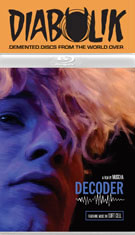

Color, 1984, 88 mins. 34 secs.
Directed by Muscha
Starring FM Einheit, William Rice, Christiane Felscherinow, William S. Burroughs, Genesis P. Orridge
Vinegar Syndrome (Blu-ray & DVD) (US R0 HD/NTSC)


Color, 1984, 88 mins. 34 secs.
Directed by Muscha
Starring FM Einheit, William Rice, Christiane Felscherinow, William S. Burroughs, Genesis P. Orridge
Vinegar Syndrome (Blu-ray & DVD) (US R0 HD/NTSC)
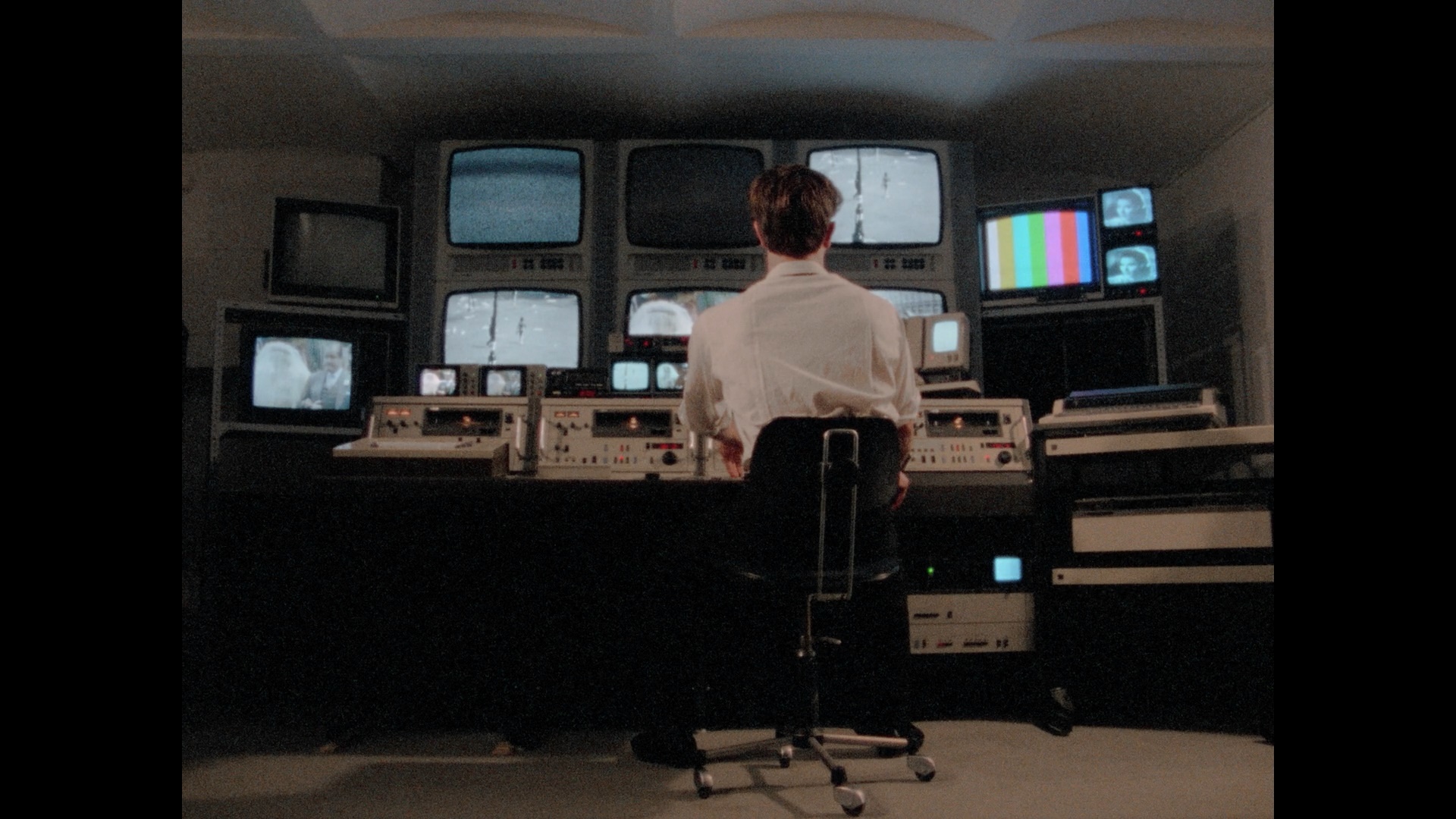 counterculture art film like no
counterculture art film like no 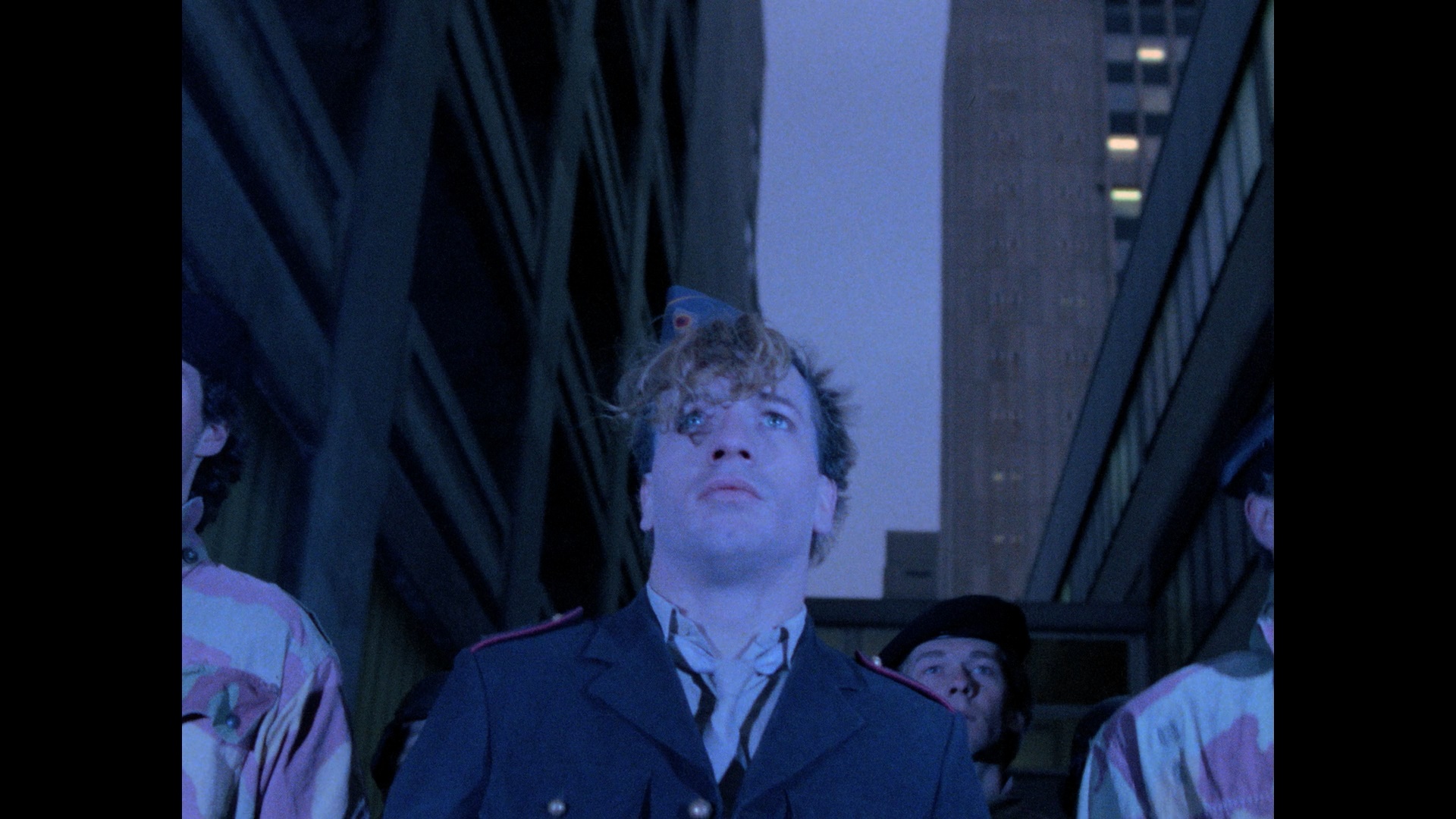 other and virtually impossible to track down for decades outside of repertory screenings, Decoder is a media-obsessed slice of provocation that plays as much like a crazed art installation as a work of cinema. What reputation the film has is largely due to a supporting role by none other than the legendary William S. Burroughs and its cutting edge soundtrack (including Soft Cell and Einstürzende Neubauten, believe it or not); though certainly not for all tastes, it's a potent slice of provocation that shows what was really going on in the waning days of the German New Wave.
other and virtually impossible to track down for decades outside of repertory screenings, Decoder is a media-obsessed slice of provocation that plays as much like a crazed art installation as a work of cinema. What reputation the film has is largely due to a supporting role by none other than the legendary William S. Burroughs and its cutting edge soundtrack (including Soft Cell and Einstürzende Neubauten, believe it or not); though certainly not for all tastes, it's a potent slice of provocation that shows what was really going on in the waning days of the German New Wave. 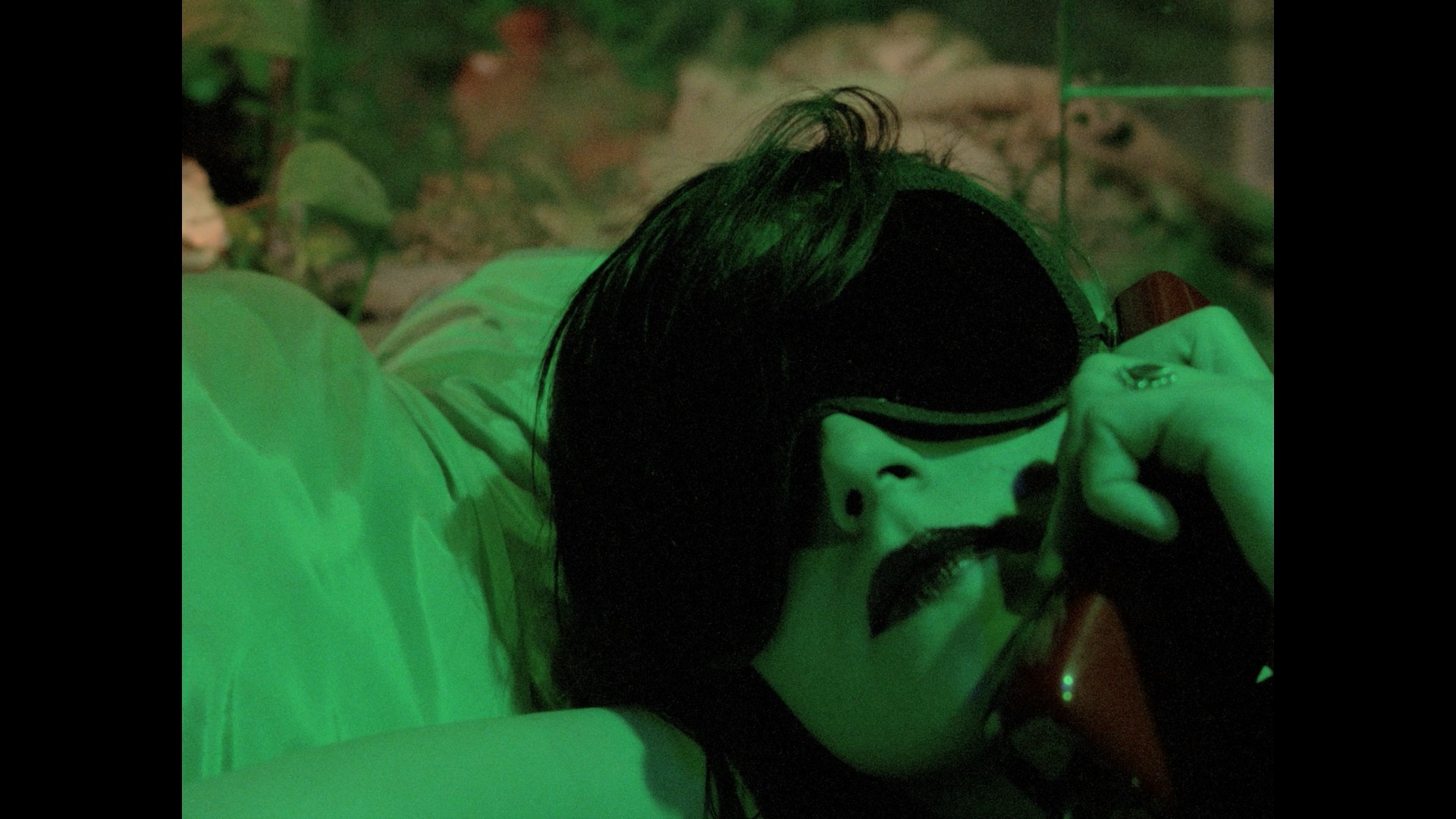 on riot culture is still unsettling thanks to real-life German uprising coverage seamlessly integrated along with footage of real-life
on riot culture is still unsettling thanks to real-life German uprising coverage seamlessly integrated along with footage of real-life 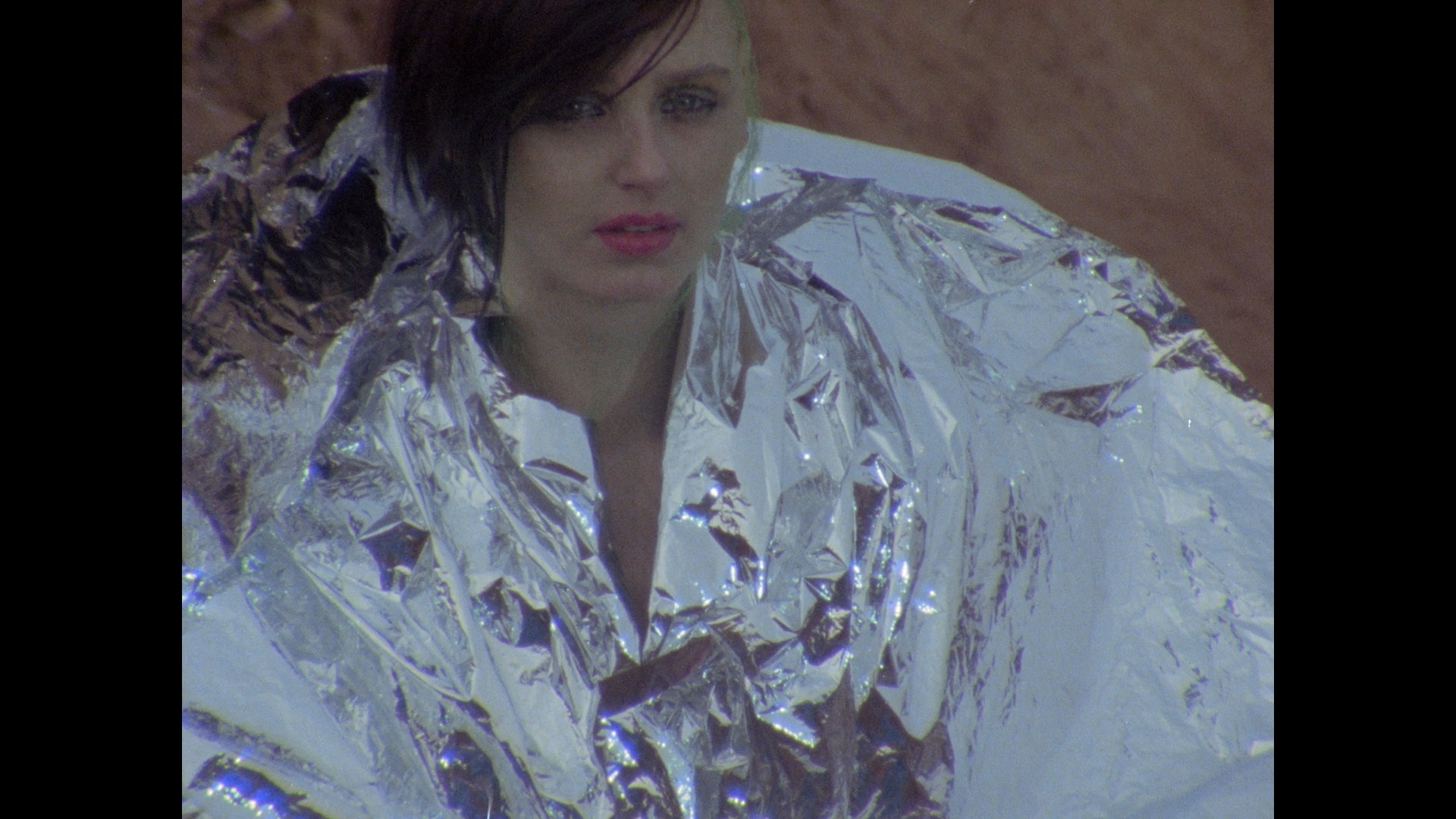 burger chains for a cognitive disconnect like no other.
burger chains for a cognitive disconnect like no other.  VHS
VHS 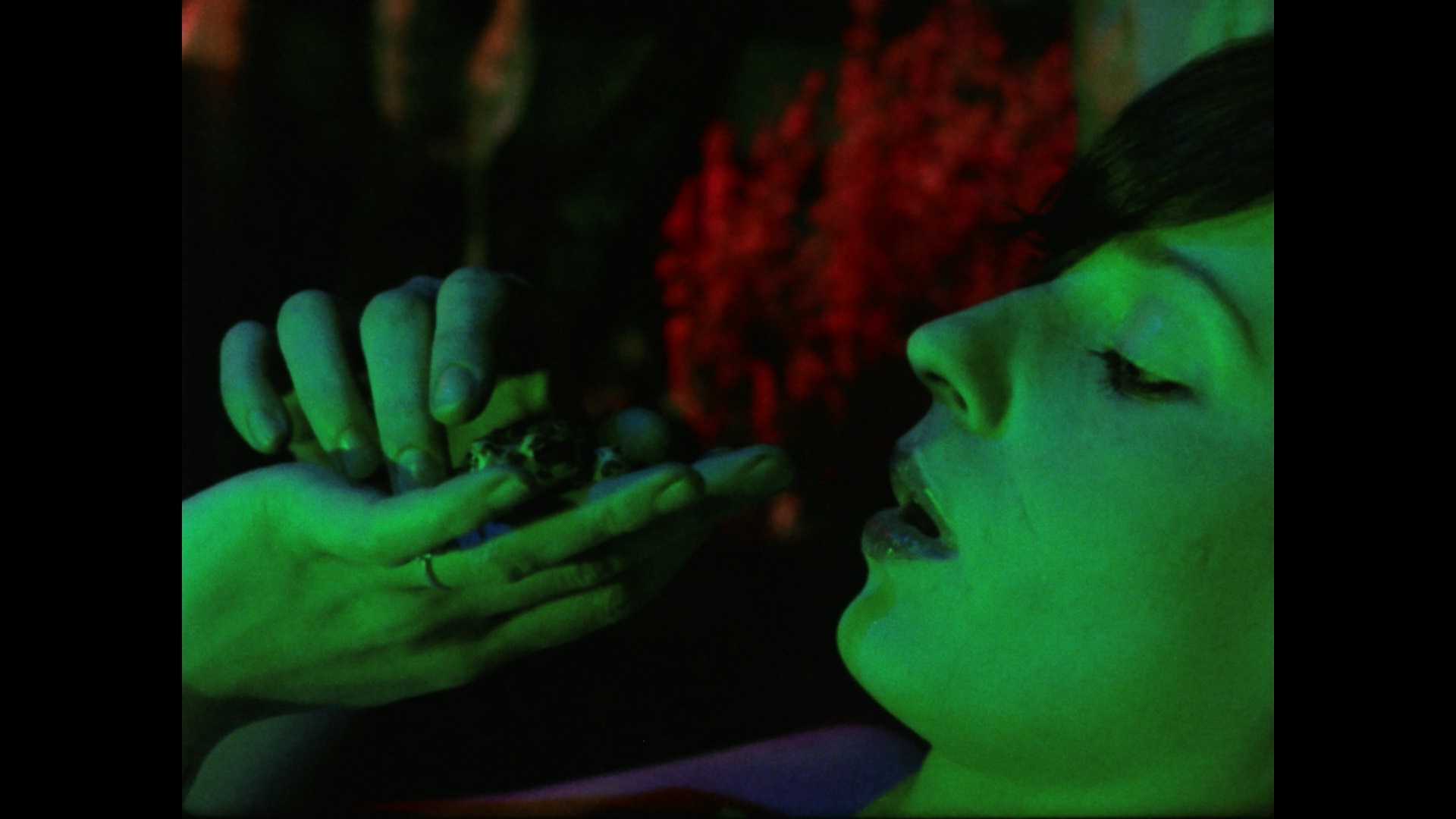 edition) and the German post-punk movement, including his own involvement in the music industry from record stores to concerts. An archival audio interview with Maeck (45m21s) is more theoretical as he talks about the ideas behind the film and the media concepts he and his fellow collaborators were toying with at the time, including a coffee shop incident that inspired the "burger civil war" concept. Maeck also introduces and presents "Excerpts from Pirate Tape" (4m54s), a Derek Jarman short capturing Burroughs on the set (and viewable in full on the BFI's Jarman Volume 1: 1972-1986 set). After that you get a chunk of raw Super 8 footage (9m34s) of the anti-Regan Berlin riots from 1982 that ended up being integrated into the film, a hypnotic then and now locations comparison (2m26s), a stills gallery (6m2s), and the original trailer. Tucked away at the end is a confounding short documentary (10m9s) about the later Italian Decoder Collective inspired by this film to explore alternative media communication, shown here through a long bit of computer animation and a discussion about the idea of media disruption that ignited the members' imaginations.
edition) and the German post-punk movement, including his own involvement in the music industry from record stores to concerts. An archival audio interview with Maeck (45m21s) is more theoretical as he talks about the ideas behind the film and the media concepts he and his fellow collaborators were toying with at the time, including a coffee shop incident that inspired the "burger civil war" concept. Maeck also introduces and presents "Excerpts from Pirate Tape" (4m54s), a Derek Jarman short capturing Burroughs on the set (and viewable in full on the BFI's Jarman Volume 1: 1972-1986 set). After that you get a chunk of raw Super 8 footage (9m34s) of the anti-Regan Berlin riots from 1982 that ended up being integrated into the film, a hypnotic then and now locations comparison (2m26s), a stills gallery (6m2s), and the original trailer. Tucked away at the end is a confounding short documentary (10m9s) about the later Italian Decoder Collective inspired by this film to explore alternative media communication, shown here through a long bit of computer animation and a discussion about the idea of media disruption that ignited the members' imaginations.![]()